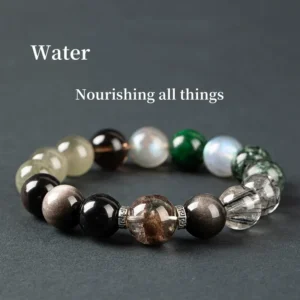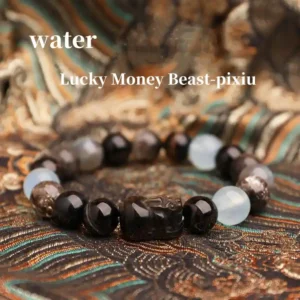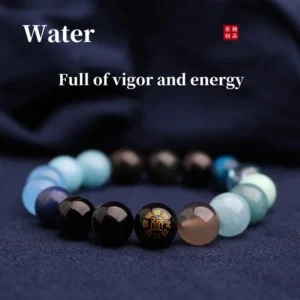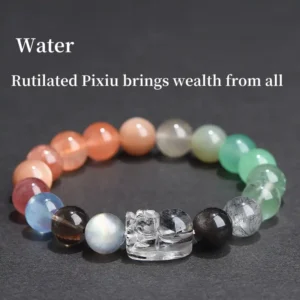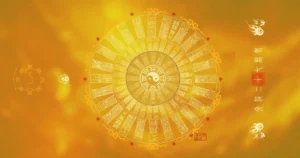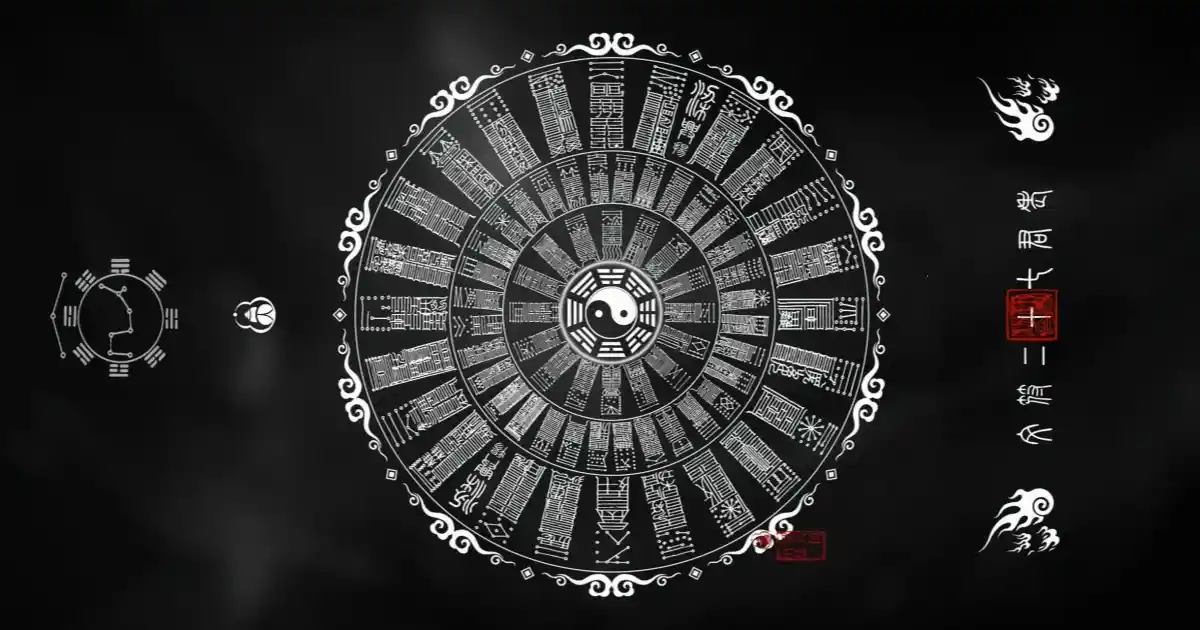
Water Element in Feng Shui: Personality, Energy & Wealth Tips
In the rich tapestry of Chinese metaphysics, the Water Element in Feng Shui and the Five Elements (Wu Xing: Metal, Wood, Water, Fire, and Earth) holds a unique and profound role. It represents the essence of flow, intuition, wisdom, and hidden strength. Far beyond being just a philosophical concept, water energy influences our personalities, relationships, career paths, and even how we design our living spaces through Feng Shui. Whether you’re new to the Five Elements Theory or seeking to understand your own elemental nature, exploring the Water element offers a powerful way to interpret life’s emotional currents, challenges, and potential for growth. In this article, we dive deep into the symbolism, traits, and practical guidance that the Water Element in Feng Shui brings into our lives.
What Is the Water Element?
In Chinese metaphysics, the Water element in the Five Elements represents the origin of life, flowing energy, and hidden potential. It symbolizes depth, reflection, wisdom, and adaptability—much like a river weaving its way through mountains and valleys. Water corresponds to winter, the kidneys, and the colors black or deep blue. It is also closely associated with emotions and intuition.
In traditional Chinese Five Elements Theory, the Water element is considered one of the fundamental forces that shape all things in the universe. It embodies flow, transformation, and latent energy. Though formless and shapeless, water can adapt to any container; it can be gentle and nurturing, yet also powerful and destructive. These dual qualities give the Water element a unique role in the elemental system—it not only carries the symbolism of life’s beginning but also holds the profound wisdom of the unseen.

Personality Traits of Water Element People
In Five Elements personality analysis, Water-type individuals resemble philosophers and dreamers. They seek deeper meaning in life and tend to approach challenges with patience and calm determination. However, when the Water element energy becomes excessive, it may lead to fear, overthinking, or emotional withdrawal. On the other hand, a deficiency in water energy might manifest as low motivation or difficulty forming emotional connections with others.
The traits of the Water element are often vividly expressed in a person’s emotional world. These individuals are typically thoughtful, emotionally rich, and highly sensitive—much like water itself, which responds to even the slightest changes in its environment. They are insightful thinkers, capable of analyzing situations from multiple perspectives, and their inner wisdom flows steadily beneath the surface. Their strong adaptability allows them to adjust to changing environments with ease, echoing the water’s ability to take the shape of any container.
However, their emotional sensitivity can sometimes make them prone to mood swings or inner turbulence. Understanding the Water element in the Five Elements can help individuals align with their natural tendencies and identify areas for personal growth. When well-balanced, Water element people become powerful sources of wisdom, healing, and transformation in both their personal and professional lives.
Water’s Role in the Five Element Cycle (Sheng & Ke)
In the Five Elements cycle, the Water element plays a vital and dynamic role in maintaining energetic balance through both generating and controlling relationships. Water not only nourishes other elements but is also shaped and regulated by them, creating a continuous cycle that reflects the rhythm of nature and life.
In the generating (Sheng) cycle, Water nourishes Wood—just like rain feeding the growth of trees. This represents how wisdom, intuition, and hidden potential give rise to new life and creativity. It symbolizes the beginning of movement and growth, showing how the Water element in the Five Elements fuels transformation and development.
In the controlling (Ke) cycle, Water subdues Fire, regulating its intensity. This interaction symbolizes emotional depth keeping impulsive or excessive energy in check—an essential metaphor for balancing passion with wisdom and calm.
Conversely, Water is also subject to control. Earth overcomes Water, as soil can absorb or block its flow. This relationship illustrates how structure, boundaries, or stability (Earth) can help contain emotional overwhelm or excess fluidity.

When the Water energy becomes either excessive—leading to emotional instability and stagnation—or deficient—resulting in fear, fatigue, or dryness—disharmony arises in both the body and the environment. Understanding these elemental interactions is key to restoring balance, whether through personal lifestyle choices, Feng Shui practices, or energy healing methods.
By observing the flow and balance of Water within the Five Element cycle, we gain insight into how life moves, adapts, and evolves through a delicate dance of support and regulation.
Feng Shui and the Water Element: Flow, Wealth, and Wisdom
In Feng Shui practice, the Water element holds a unique and powerful significance. It symbolizes flow—and this flow is often closely associated with both wealth and wisdom. Traditional Feng Shui believes that having gentle, flowing water near a residence indicates smooth financial fortune, as the movement of water brings life energy (Qi) and opportunities.
At the same time, water is seen as a symbol of intelligence and depth, representing mental flexibility and profound insight. A calm, steady stream reflects a balanced and thoughtful mind, while turbulent water can suggest emotional chaos.
By incorporating the Water element in Feng Shui thoughtfully—such as through water features, mirrors, or colors like black and blue—you can enhance the flow of energy in your space. When used correctly, water brings clarity, prosperity, and inspiration, supporting both personal life and career success.
The Water Element in Chinese Astrology
In Chinese astrology, the Water element also plays a vital role. It is associated with specific stars and directions, and it influences a person’s destiny, personality, and overall life path. The qualities represented by water—such as emotional depth and strong intuition—are reflected in astrological interpretations, helping individuals gain deeper insight into their character and the choices they face in life.
Years ruled by the Water element (those ending in 2 or 3, such as 2023 or 2024) are particularly favorable for introspection, strategic planning, and emotional healing. These years support turning inward, refining goals, and seeking clarity.
If your Day Master (your main element in the BaZi or Four Pillars chart) is Water, you may benefit from wearing or using crystals for water element people, such as black tourmaline, aquamarine, or moonstone. These stones can amplify your natural clarity, flow, and inner wisdom.

Embracing Your Water Element Nature
Once you understand your connection to the Water element, learning to embrace it can bring greater harmony to your life. For those with strong Water element traits, it is important to leverage your insight and adaptability—seizing opportunities in your career and sensing the needs of others in relationships. At the same time, be mindful to avoid emotional distress caused by over-sensitivity, and strive to find inner peace.
For those with a deficiency in water energy, there are ways to enhance it, such as spending time close to natural water—taking walks by rivers, enjoying lakes, or simply feeling the flow and power of water. This helps balance your Five Elements energy more effectively.
In summary, as an essential part of the Five Elements, the energy and meaning of the Water element deeply influence our lives. Whether you are exploring Feng Shui, astrology, spatial arrangement, or life guidance, understanding and harnessing the power of the Water element can bring more wisdom and good fortune.

